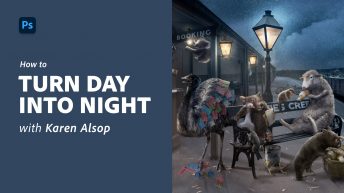View this practical video that will help you set up your Wacom Cintiq Companion 2 (or an Intuos Pro or Cintiq) for optimal use.
Customise your tablet and make the most of the side button settings.
Open the Wacom Desktop Centre Application
TOUCH SETTINGS

I personally leave touch settings on default, however you may find that you prefer a faster or slower response as you use gestures and our fingers on the tablet.
PEN SETTINGS

I also leave my Pen Settings as default, however you may find it worthwhile making changes that suit your workflow. You can change the sensitivity of the pen too.
ERASER

You can flip your pen around and use the end as a traditional eraser. Customise the sensitivity if you wish.
CALIBRATE

Calibrate regularly (you will be reminded). Calibration ensures that the pen tip is accurately being represented on the tablet.
BACKUP SETTINGS

EXPRESS KEY SETTINGS

Modify each of the Express Keys to suit your workflow and the most common keyboard shortcuts you usually use. You can customise to ‘ALL’ programs, or specify different shortcuts to individual programs.

ESC

I have my top button set to escape. When using gestures and your fingers to zoom in and out, it’s very easy to slip and rotate the canvas. To rotate back to straight with your fingers is near impossible. ESC will bring your canvas back to the original orientation. When you do not have your keyboard available, this shortcut is a lifesaver.

MODIFIERS

The most common shortcut keys you will use are the modifier keys: Shift, Alt/Option, Ctrl/Cmd
You can easily assign these keys to the side buttons order of your preference. Click on Define Modifier and select.
KEYSTROKE
You can select any combination of keystroke shortcuts to assign to buttons. Just clear (don’t hit delete when in the Keys box as that will add delete to the keystroke options). Click on the keystroke or combination of keystrokes you would like. Name your Keystroke shortcut and hit OK.

X (to toggle between foreground and background colours is set to my bottom button.
ROCKER RING
NB: This will be different on the Cintiq and Intuos Pro, the Scroll wheel will give you a few more customisation options.

Customise the Rocker Ring (or scroll wheel) to suit your workflow. I use the side buttons to make bigger and smaller (brush etc). My up button is set to Undo. My keystroke down below is \ which turns on the red overlay in Photoshop. I have this set up differently for Lightroom.

EXPRESS KEYS
With Express Keys you can add many other menu items for quick access on screen. You can then assign a button to bring you the express key overlay on your screen.

USING THE PEN
Using the pen is a natural way of working, and once used to it is more controlled and precise than a mouse.
You can use the pen like a mouse without pressure sensitivity, keeping the brush the same size regardless of pressure.

Use the other end to erase like a traditional pen or pencil

PRESSURE SENSITIVE BRUSH
Turn on Pressure Sensitivity to allow the brush to change size dependant on the pressure.

You can also control the Opacity or the Flow with the selections up the top.
You may wish to customise brushes in the brush panel and save those customised settings as a new brush that you can return to with your specific preferences.
NB: Why I prefer to work with flow over opacity.
Both options are similar, however you will see that FLOW is more of a gentle build up where as OPACITY continues to overlap strokes as you layer the build up.

WACOM ART PEN

The Wacom Art Pen gives you additional flexibility in rotating brushes when using the table. I can’t live without this pen.
When wanting to control the direction of a specific brush, particularly when I’m masking, I can just rotate the pen in my hand and the brush direction rotates on the tablet.
To purchase Wacom Products from Australia please visit KAYELL AUSTRALIA











How do you set your key to ESC? Every time I try and do it through the keystroke menu, hitting the ESC key exits the menu. Thanks!